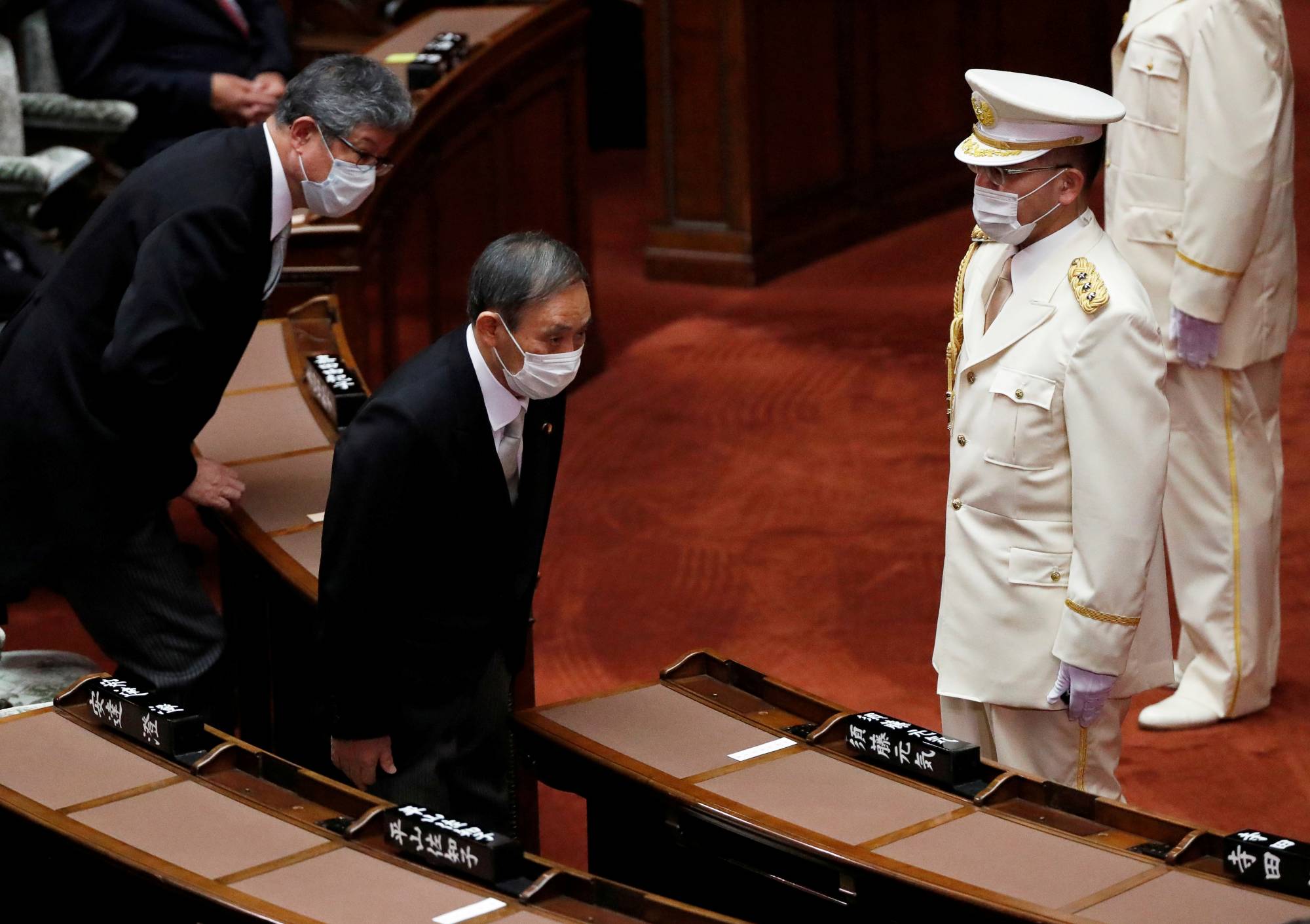It’s been a month and a half since Shinzo Abe’s abrupt resignation, and Washington’s attention quickly shifted to successor Prime Minister Yoshihide Suga — virtually an unknown politician among the international community despite the fact that he had played a powerful role throughout the Abe administration as chief Cabinet secretary. Gradually, Washington is beginning to see the outlines of Suga’s policies from the viewpoint of U.S.-Japan relations.
His pledge for continuity has been welcomed, but still many questions loom among the foreign-policy community in Washington about the new prime minister.
Abe’s resignation came as such a shock to Washington that the Center of Strategic International Studies (CSIS) — one of the premier think tanks in the U.S. — hosted for the first time in two decades an event featuring the change of government in a foreign country. CSIS President and former Deputy Secretary of Defense John Hamre said that he “would be forever grateful to Prime Minister Abe because he stepped forward to carry the flag of progressive Western values, democracy, free enterprise, transparency, and all those foundational values — at the time America was confused and not leading.”


















With your current subscription plan you can comment on stories. However, before writing your first comment, please create a display name in the Profile section of your subscriber account page.